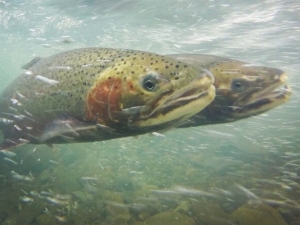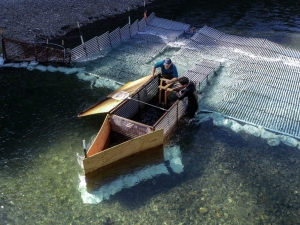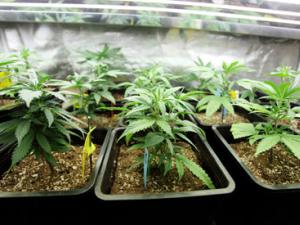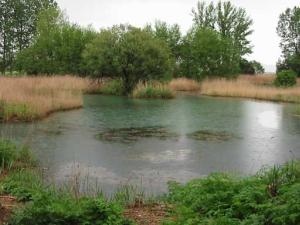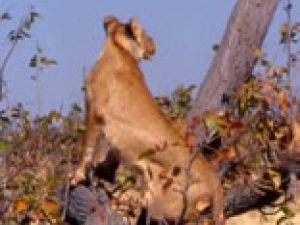

Research Bio
Mary Power is Professor Emeriti in the Department of Integrative Biology and Faculty Manager of the Angelo Coast Range Reserve. She studies food webs, primarily algal-based river food webs and their linkages to upland and estuarine ecosystems. She and her collaborators use field experiments and long-term, place-based research to investigate 1) how traits and interactions of organisms, from fishing birds and fish to algae and microbes, determine ecosystem states; and 2) why states change under different environmental regimes. Their primary field site is the South Fork Eel River, in and around the Angelo Coast Range Reserve in Mendocino Co., CA. At Angelo, they have studied how hydroclimatic variation and changes in light or nutrient-limited productivity and in web membership affect structure and dynamics of food webs, as well as the performances and interactions of species within them. Presently (2024- ) they are focusing three alternative states of algal-based food webs that develop during the biologically productive summer low flow season, depending on flows during that summer and high flows during the preceding winter. They use in situ incubations or streamside experiments to control light conditions, grazers, and successional stages of the microbiome, and in the lab, use quantitative stable isotope probing and nanoSIMS to investigate taxon-specific growth rates; rates of carbon and nitrogen fixation, and elemental transfers within microbiomes of the Eel’s dominant green macroalga, (Cladophora glomerata). High flows during the previous winter control the amount of Cladophora that proliferates the following summer. Cladophora streamers become overgrown with highly nutritious epiphytic diatoms that support grazing invertebrates, prey for fish and other predators, but only if summer base flows keep mainstem pools cool and sufficiently flushed. If drought or summer water extraction reduce flows and allow pools warm and stagnate, nutritious algal assemblages can be overgrown by potentially toxic cyanobacteria. They are investigating how flow and temperature regimes affect elemental exchanges and species interactions within attached algal microbiomes over their summer succession; how these processes and interactions with higher trophic levels mediate transitions among alternate algal food webs, and the consequences for linkages among river, upland, and estuarine food webs.
Research Expertise and Interest
freshwater ecology, food webs, trophic dynamics, northern California rivers, watersheds
In the News
A Single Dry Winter Decimated California’s Salmon and Trout Populations
Planning for Climate Resilience in California’s Freshwater Ecosystems
Environment Takes Big Hit From Water-Intensive Marijuana Cultivation
The debate over the legalization of marijuana has focused primarily on questions of law, policy and health. But a new paper co-authored by UC Berkeley researchers shines a spotlight on the environmental damage caused by illegal marijuana plantations in sensitive watersheds.
Eel River Observatory seeks clues to watershed’s future
University of California, Berkeley, scientists will receive $4,900,000 over the next five years to study the nearly 10,000 square kilometer Eel River watershed in Northern California and how its vegetation, geology and topography affect water flow all the way to the Pacific Ocean.
Four UC Berkeley scientists elected to National Academy of Sciences
Four University of California, Berkeley, faculty members – physicists John Clarke and Bernard Sadoulet, chemist John Hartwig and ecologist Mary Power – have been elected members or foreign associates of the National Academy of Sciences, bringing UC Berkeley’s total NAS membership to 141.
Study shows restored wetlands rarely equal condition of original wetlands
A new UC Berkeley study cautions, however, that restored wetlands may not recover to the condition of a natural, undamaged wetland for hundreds of years, if ever.
Ecosystems take hard hit from loss of top predators
A new paper reviewing the impact of the loss of large predators and herbivores high in the food chain confirms that their decline has had cascading effects in marine, terrestrial and freshwater ecosystems throughout the world. The study, co-authored by UC Berkeley researchers, highlights the impact “apex consumers” have on the dynamics of fire, disease, vegetation growth, and soil and water quality.

